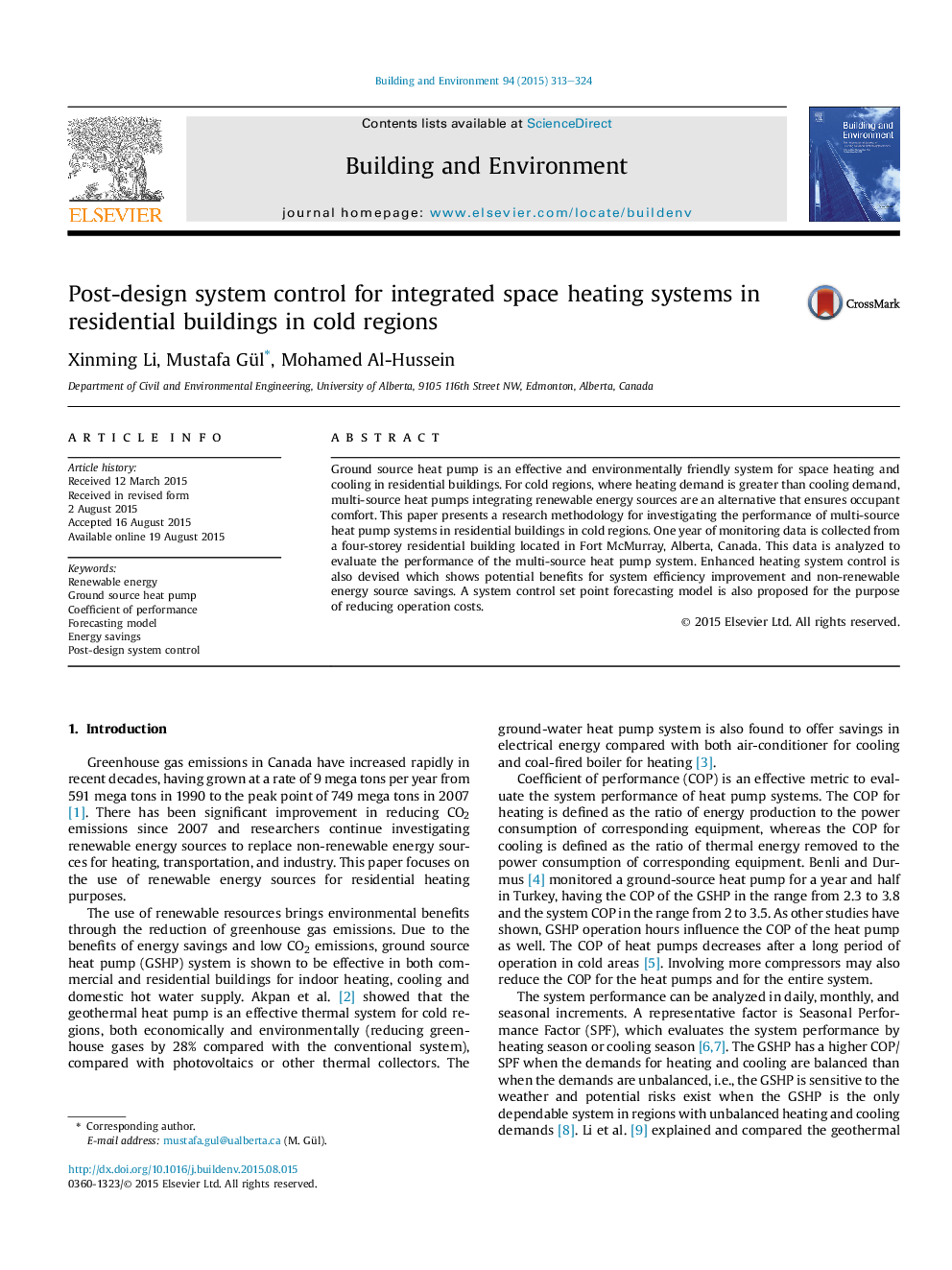| Article ID | Journal | Published Year | Pages | File Type |
|---|---|---|---|---|
| 247815 | Building and Environment | 2015 | 12 Pages |
•A residential building is equipped with an integrated space heating system comprising renewable and non-renewable sources.•A sensor based monitoring design has been implemented in the integrated heating system to obtain its performance.•A post-design heating system control algorithm is devised for system efficiency improvement and energy source savings.•A system control set point forecasting model is proposed for the purpose of reducing operation costs.
Ground source heat pump is an effective and environmentally friendly system for space heating and cooling in residential buildings. For cold regions, where heating demand is greater than cooling demand, multi-source heat pumps integrating renewable energy sources are an alternative that ensures occupant comfort. This paper presents a research methodology for investigating the performance of multi-source heat pump systems in residential buildings in cold regions. One year of monitoring data is collected from a four-storey residential building located in Fort McMurray, Alberta, Canada. This data is analyzed to evaluate the performance of the multi-source heat pump system. Enhanced heating system control is also devised which shows potential benefits for system efficiency improvement and non-renewable energy source savings. A system control set point forecasting model is also proposed for the purpose of reducing operation costs.
